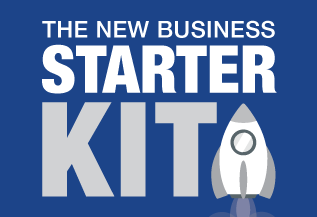Refinancing Your Home Loan
Stage 3: The Cost vs Benefit of Refinance
Refinancing your loan can be a smart way for you to reduce your loan repayments or pay off your loan quicker. However, there may be some
refinance cost that you need to consider. You need to weigh up the short term pain for the long term gain. To make sure that you are not
caught off guard, we have listed some common fees and charges to look out for when refinancing. It is best to check with lenders or your
mortgage broker in case we miss some upfront cost here.
Loan Application
This is a fee the lender charges when you apply for a loan. It can also be referred to as an establishment, up-front, start-up or a set-up
fee. Fees vary depending on your provider and will cover things such as credit checks, property valuation and basic administration costs.
Some lenders will waive this fee under certain circumstances, so it’s worth asking.
Property Valuation Fees
Most lenders will request that your property be valued by an independent valuer. The cost can vary between $250 to $600 per property.
Mortgage Registration
Mortgage registration apply when you are refinancing your property and the costs differ from state to state. Mortgage registration fees are
usually in the hundreds of dollars. Each revenue office website has online calculators for you to work out the government fees associated
with transferring a mortgage.
Legal, Settlement and Handling Fees
Some lenders charge legal, settlement and handling fees for your loan. This is a cost of preparing loan documentation for your application
and legal fees to process the loan documentation.
Break Cost
Break cost applies if you refinance your fixed rate loan before the end of the loan fixed period. Break cost is charge because lender will make financial loss if you break a fixed term loan.
Break costs can be significant and are calculated based on the length of time remaining on the fixed term, current market interest rate and
the loan amount. So, it is best that you speak to your current lender and find out the estimated break cost if you wish to refinance a fixed
rate loan.
Lenders Mortgage Insurance
If you are refinancing a loan and have not accrued 20% equity on your current loan, you may also need to pay Lender’s Mortgage Insurance (LMI). This cost can be quite significant. So before choosing to refinance, make sure that you have 20% equity on your property.
Benefits
The main benefits that you get from refinance is lower interest rate. You need to work out the savings that you will be getting from lower interest rate. The simplest way to do this is to work out the difference between your current loan repayment against the new loan repayment. Make sure that the term of the loan term remains the same. If the loan term is extended, say from 15 years out to 20 years, no doubt that your monthly repayment will be lower, but you will be paying more interest in the long run.
For example, if you are paying $2,000 to refinance your loan and you will be saving $50 per month, it will take you at least 40 months to reach the breakeven point. You need to weigh up if this is something that will be beneficial for you.
We’re here to help you
Dealing with banks can be a stressful experience but rest assured that our mortgage broker based in Glenelg (but our mortgage broker services the entire Adelaide Metropolitan area) can help you make the right decision about your mortgage. We will guide you at every stage of your loan process.
Contact us on 08 8376 0455 or drop into our office at 593 Anzac Highway, Glenelg SA 5045.
Next Stages
Stage 4: Talk to Your Current Lender
Any advice contained in this article is of a general nature only and does not take into account the objectives, financial situation or needs of any particular person. Therefore, before making any decision, you should consider the appropriateness of the advice with regard to those matters. Information in this article is correct as of the date of publication and is subject to change.














